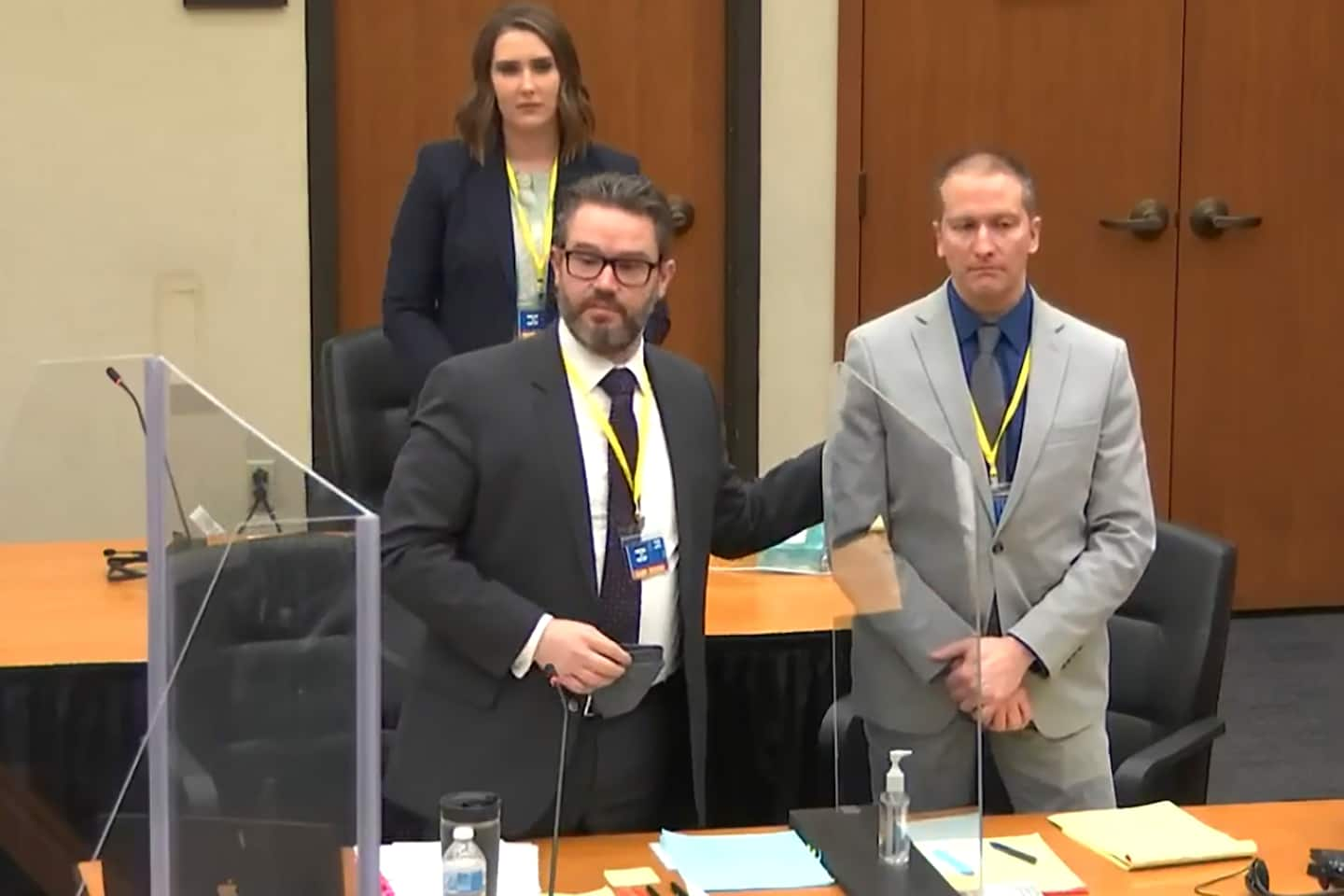This new ruling could let the suspect in George Floyd’s killing go free

Chauvin’s defense is literally that he did not kill Floyd. His attorneys say that Floyd died of a combination of a drug overdose and preexisting health conditions. Floyd’s autopsy report revealed the presence of fentanyl and methamphetamine. Prosecutors told Hennepin County District Judge Peter Cahill that Floyd had been “struggling with an opiate addiction, like so many Americans.”
Last year, defense attorneys asked the judge to allow testimony about a previous arrest of Floyd because of what they later termed “incredible” similarities between that arrest, in May 2019, and the one that resulted in Floyd’s death. In both cases, police officers pointed a gun at Floyd, ordered him out of his car, then said they saw him put pills in his mouth.
In the 2019 arrest, Floyd was treated by paramedics who told him his blood pressure was so high that he was at risk for a stroke or heart attack. He was taken to a hospital, not jail, and never charged with a crime.
Chauvin’s attorneys say that Floyd was hoping for the same result when he was arrested in 2020, and took drugs for that reason. In August, the judge properly refused to admit evidence of the 2019 arrest, ruling that it could bias jurors against Floyd, for reasons that had nothing to do with Chauvin’s innocence or guilt.
Unfortunately, the judge recently changed his mind. He reversed his previous decision because of new evidence discovered by Chauvin’s attorneys in a search process that Cahill called “mind-boggling.” A better word might be “sketchy.”
When Cahill barred the evidence in August, Floyd’s car and a police squad car had been searched, with no contraband discovered. In December, Eric Nelson, Chauvin’s lead counsel, requested that the vehicles be searched again. That time, Floyd’s car was found to contain meth and fentanyl. Nelson then examined the squad car and found drugs — with Floyd’s DNA — in that vehicle as well. There has been no explanation of how police missed the drugs when the cars were searched earlier.
If this were a standard criminal prosecution — with a defendant who is not a former police officer — the claim would be that the drugs were planted. It’s too much of a coincidence, the argument would go, that trained law enforcement officers conducted searches of two cars and found no drugs but that, months later, in a search requested by a defense attorney, drugs suddenly turn up.
But the Minnesota attorney general’s office, which is prosecuting this case, is unlikely to make that argument, because it might cast aspersions on another branch of state government, the Minnesota Bureau of Criminal Apprehension, where both cars are being held pending trial. That’s why criminal cases against police officers should be conducted by special prosecutors, who have no connection to the government or police.
Cahill now says that the prior arrest is relevant after all, to the crucial issue of what killed George Floyd on May 25. The jury can consider whether Floyd’s consumption of drugs while being arrested is his modus operandi, and that he suffered a medical emergency after taking drugs in the past. Jurors will be permitted to see body-worn camera video of Floyd allegedly resisting arrest in 2019, being pulled out of his car and handcuffed, and a photo of drugs found in his car. The jury will hear testimony from a paramedic that Floyd told her he had consumed seven pills the morning of his arrest, and one during his arrest.
Cahill wrote in a ruling this week that the evidence is relevant to Floyd’s cause of death and that “there is little danger of unfair prejudice.” The judge is wrong on both counts. Nothing consequential has changed since the judge’s August finding excluding that same evidence. The recent bizarre discovery of drugs from the 2020 arrest does not make what happened in a different arrest a year before any more relevant.
If the issue is whether Floyd died from a drug overdose, the most probative evidence will come from expert witnesses. The Post consulted seven experts in toxicology, and all but one said that the amount of drugs in Floyd’s system was unlikely to have caused him to overdose, even with his preexisting health conditions.
Still, the dramatic video of Floyd’s 2019 arrest is likely to have a profound impact on jurors. The judge will instruct them not to make negative inferences about Floyd’s character. The jury will have a difficult time heeding this instruction. It’s extremely difficult — if not mentally impossible — for people to process information for one purpose but ignore it for other purposes.
If jurors have reasonable doubt, they should acquit Chauvin. But their verdict should not be based on prejudice against a Black victim depicted by the defense as a violent and reckless dope fiend.
Cahill’s reversal opens his courtroom to a miscarriage of justice. In a prosecution of a police officer for killing a Black man, it would not be the first.
Read more:






